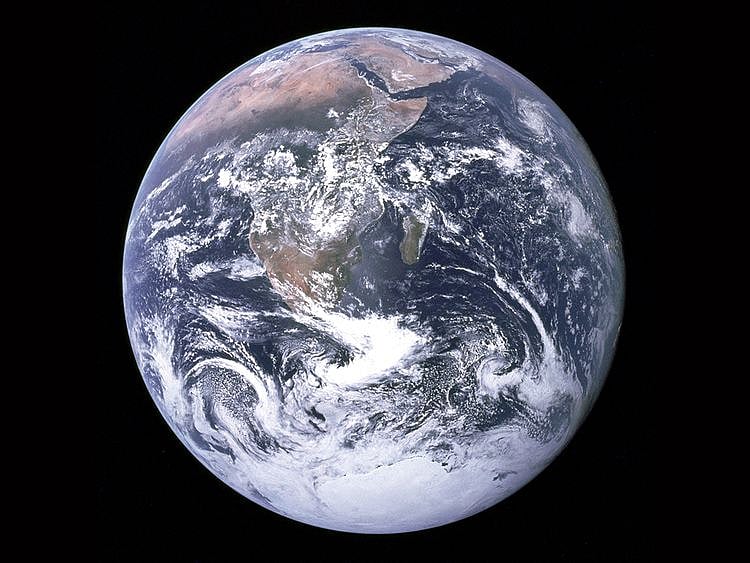Earth spins faster, making today one of the shortest days
Continued acceleration in Earth’s rotation could carry long-term consequences

Dubai: Scientists have confirmed that today, Tuesday, is one of the shortest days ever recorded in Earth's history, shortened by 1.25 milliseconds from the standard 24-hour cycle.
The unprecedented acceleration in Earth’s rotation, though imperceptible to the human experience, has caught the attention of astrophysicists and climatologists worldwide.
According to experts, the change is primarily attributed to lunar gravitational forces exerting an increased pull on the planet, subtly speeding up its spin.
While a millisecond may seem insignificant, scientists warn that continued acceleration in Earth’s rotation could carry long-term consequences.
The increase in centrifugal force due to faster rotation could push ocean waters away from the poles toward the equator.
If the planet's spin increased by just one mile per hour, sea levels in tropical regions could rise by several inches, enough to flood vulnerable coastal cities already at risk from rising seas.
More extreme projections are even more alarming: if Earth were to spin 100 miles per hour faster, large portions of the equatorial zone could be submerged entirely, as polar waters surge toward lower latitudes.
But the effects wouldn’t be limited to geography. A continuous acceleration could shorten the solar day to 22 hours, disrupting the human circadian rhythm, the body’s internal clock.
Previous studies have linked even minor time shifts, such as daylight saving time, to increased rates of heart attacks, strokes, and car accidents. Permanent shifts, researchers suggest, could have deeper implications for public health.
NASA astrophysicist Dr. Sten Odenwald has also sounded the alarm on the potential impact of a faster Earth on weather systems. As Earth spins faster, the Coriolis effect, the force that shapes the rotation of storms, would become more powerful, possibly giving rise to faster, more destructive hurricanes and cyclones.
Scientists rely on atomic clocks, devices that measure time by monitoring the vibrations of atoms in a vacuum chamber, to detect such minute changes in Earth’s rotation.
The phenomenon was first flagged earlier this year by astrophysicist Graham Jones of the University of London. Jones pinpointed additional potential days of acceleration, July 9, July 22, and August 5, suggesting a bigger trend.
While the exact causes remain under investigation, scientists cite several contributing factors: earthquakes, ocean currents, melting ice caps, movement within Earth’s molten core, and global weather patterns like El Niño.
Sign up for the Daily Briefing
Get the latest news and updates straight to your inbox
Network Links
GN StoreDownload our app
© Al Nisr Publishing LLC 2026. All rights reserved.